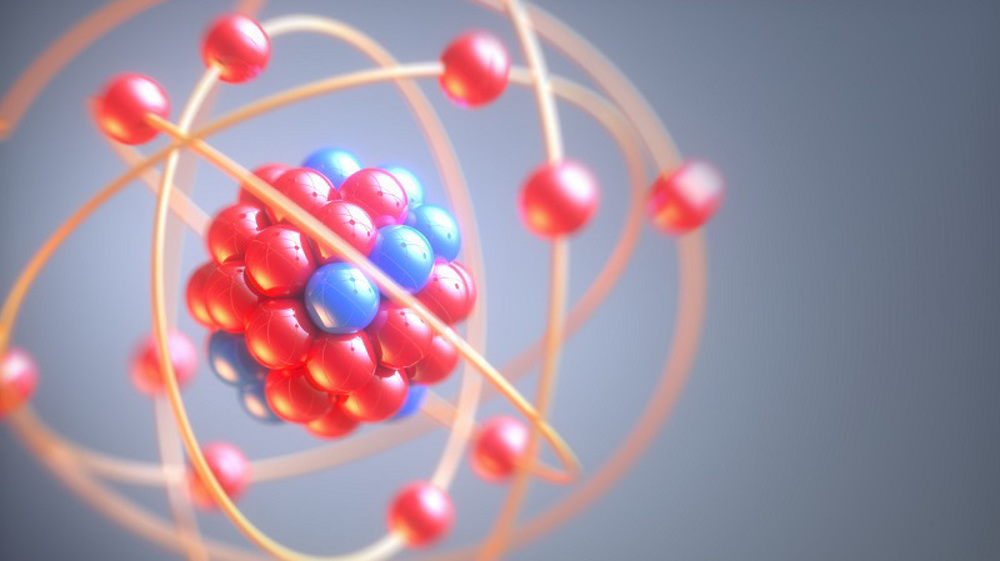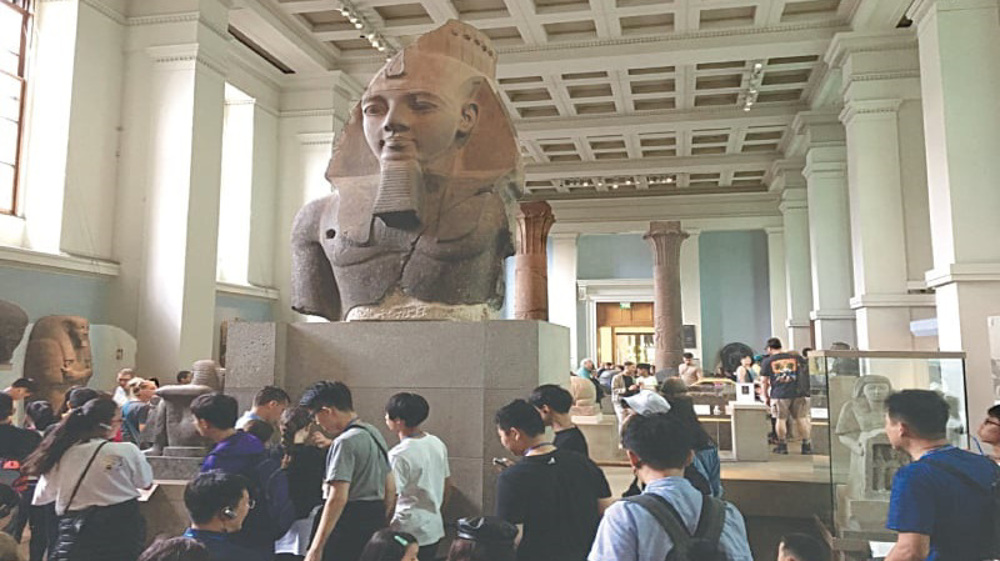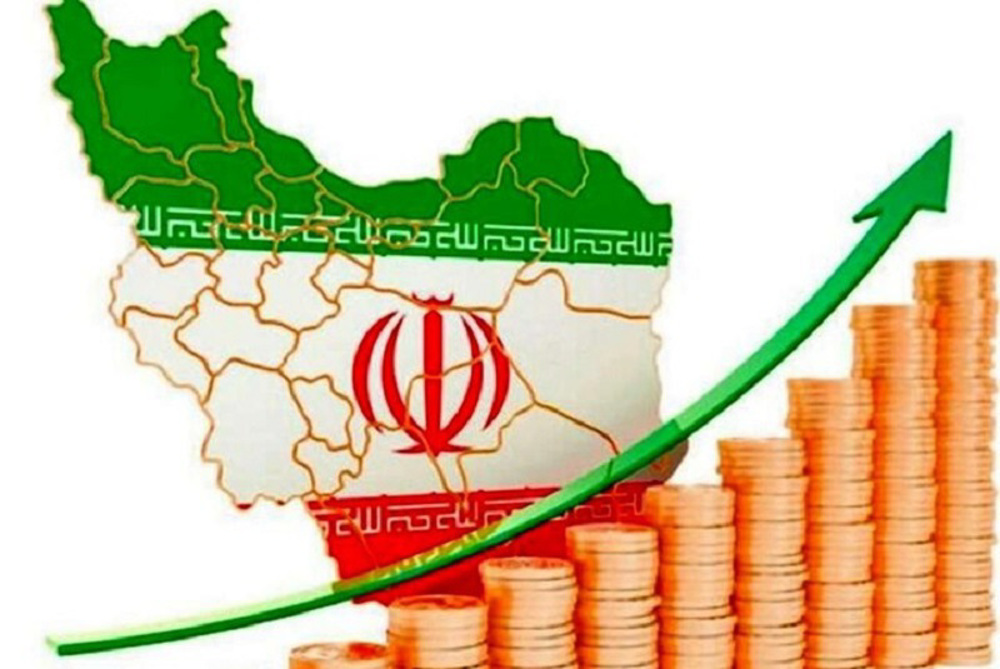Europe parrots America with JCPOA+ request
When in May 2018 the US pulled out of the JCPOA, the EU soon afterwards enacted an updated blocking statute. This was to nullify US sanctions on countries trading with Iran. But Europe itself hasn’t really been trading with Iran since then. Iran understood that Europe wasn’t powerful enough to pull it off.
Iran had at least proved the innocence of its nuclear technological advancement. or at least it appeared thus. But then. all of a sudden, Haiko Maas, the German Foreign Minister, dropped a bomb early this month: We distrust Iran”, he announced.
But isn't that exactly why the JCPOA or joint comprehensive plan of action was signed all along; to gain trust by coming to an understanding. Instead Europe is echoing America in asking for more, for a JCPOA-Plus.
Contractual obligations breached by the West could mean great loss to the continent, which is an extension of Asia. Europe is the immediate neighbor of West Asia and therefore depends on Iran as a front line barrier to terrorism leaking into its territory. In other words, Europe needs an alliance with Iran to boost its own security. And now it is bent on breaching the JCPOA aiming for further negotiations.
But Iran doesn’t have to renegotiate a previously concluded deal. Does Iran risk the wrath of a united Western Front, or is Europe losing all, in inching for a little more?
Iran is not going to get distracted from its goals anymore. With the US withdrawal from the JCPOA in 2018 Iran began stepping back from its nuclear commitments, and now the Parliament has recently passed a bill entitled "Strategic Action to Lift Sanctions", following the death of Nuclear scientist, Dr. Mohsen Fakhrizadeh.
European delusions of grandeur
The Europeans are telling the Americans that we have the power and we can be decisive; they are actually sending this message to the United States, and not to Iran. They say we are world-class actors. This is a rule known in the international system. It is true that the influential European countries are playing the American geopolitical game in all the major global competitions, especially against emerging powers like China, India, and even Russia. We shouldn’t take Europeans’ words too seriously in this matter. We need to see who is operating that pressure lever and how we can get rid of that pressure, which always ends with the US.
Kumars Yazdan Panah, Political Analyst
Germany holds the EU presidency now. And its foreign minister’s remarks calling for an "agreement beyond the UN Security Council" followed the assassination of Mohsen Fakhrizadeh an Iranian nuclear scientist. So it’s pretty hypocritical when it says Iran is not to be trusted, when the obvious culprits of the assassination are the Westernmost superpower the US, as well as Israel. Israeli Premier Netanyahu did say in recent years in his attempt at proving Iran’s nuclear program is military, to remember the name Mohsen Fakhrizadeh, as if putting a target on his back.
The Iranian Parliament members set a deadline of one or two months, noting that if the European and American parties do not return to their commitments under the JCPOA and do not take strategic action to lift sanctions, Iran would withdraw from the Additional Protocol and resume enrichment. This is just a law to be implemented in the future. The law won’t be implemented any time soon. Despite the approval of the Guardian Council, the government has not yet taken action because there is no need to act hastily. There is a shift in power in the United States, but the atmosphere in America is still unclear. It is possible that the new U-S administration will come to the realization that the previous administration took the wrong actions, and decide to return to the JCPOA, albeit conditionally and partially. In my opinion, this conditional return to the JCPOA is also a positive step. In that case, we can move the negotiations forward based on what we want.
Kumars Yazdan Panah, Political Analyst
Parliament defending rights of the Iranian people
We all agreed with the totality of the plan. I think it was a big step in the parliament in defending the rights of the Iranian people. But I think we should have withdrawn from the Additional Protocol immediately. Mr. Biden will take office within the two months deadline we have set. He’s expected to give some initial positive signals when he enters the Oval Office. This causes us to lose a golden opportunity. On the other hand, had we withdrawn from the Additional Protocol immediately after the approval of the Parliament, no one could have accused us of doing so while Biden was coming to power. We would also have the upper hand in case the government was to engage with the JCPOA signatories. They could’ve used the trump card to say: “fulfill your obligations so we would return to the Additional Protocol which we were voluntarily implementing.”
Seyyed Nezamoddin Mousavi MP, Article 90 Committee
It’s not just a matter of Fakhrizadeh the man. He was a national asset who was assassinated less than a year after the assassination of General Soleimani and companions by the US in Iraq. Also the JCPOA laid bare to supposed nuclear inspectors Iranian scientists and national secrets; bad enough it never helped boost this country’s oil sales and foreign trade.
It’s understandable how many in Iran believe the government should have taken stronger action against Trump's JCPOA exit. Even Joe Biden, vice president to former democratic US President Obama, who signed the deal with Iran, is talking of returning to that nuclear deal, as a prelude to further negotiations. It was lack of US commitment to the deal that handed Iran’s parliament exactly to the very enemies of the JCPOA, in the first place, the Principalists.
Perhaps the most important thing before claiming compensation is that Iran’s commitments must return to how they were before. Tehran was honoring its commitments for years and was expecting the West to do the same. The main reason why the Islamic Republic of Iran entering into negotiations on the nuclear issue was to lift sanctions. We fulfilled all our obligations under the JCPOA, but they did not honor any of theirs. Naturally, when the other side does not lift the sanctions and does not fulfill its obligations, our first task should be to go back to square one.
Seyyed Nezamoddin Mousavi MP, Article 90 Committee
And now the US and Europe are insisting on renegotiating in order to scrap Iran’s ballistic missile programme using any excuse imaginable such as calling Iran a threat to the region, it’s own home, the region of west Asia, by bringing up accusations of human rights abuses, referring to the likes of Ruhollah Zam. He was the son of a revolutionary cleric, who used social media to denounce alleged state corruption. He was executed days ago having been convicted of trying to overthrow the Islamic republic of Iran.
The Americans inflicted heavy financial losses on Iran by withdrawing from JCPOA and imposing new sanctions. And now their European allies are echoing them. The extent of these losses is more than economic or military. They are a matter of life and death, especially with COVID-19 rampaging.
Iran is among the countries working on a vaccine, but even national manufacturing is a joint enterprise between different countries. And, for all intents and purposes, drugs, medical supplies and food are NOT exempt from US sanctions. Now the Iranian government says it will not have the US back in the deal; unless it compensates Iran’s losses and promises never to repeat its mistakes.
If the government says so, I think [this view] signals a kind of weakness in our diplomatic discourse, and must be abandoned. The fact is that the impacts of the US withdrawal from the JCPOA and the intensification of sanctions on the Iranian society are quite obvious. Maybe that means we no longer accept negotiating on anything other than the nuclear issue. It's very natural - the other side is not trustworthy and has always[sic] been so.
Kumars Yazdan Panah, Political Analyst
Prejudiced worldview
I closely follow stories on Western media. Wherever disagreements arise among Iranian officials on an issue, they interpret it as a division in the governing body of Iran and portray it as a negative phenomenon.
While, if the same differences occur in the West, they perceive it in a positive sense and present it as a sign of freedom and democracy.
You see, inside Iran, there are different voices in the government. You see the same disagreement between the government and the parliament over the most crucial topics, ranging from negotiations of the nuclear issue, disputes over the budget. What the government thinks in terms of foreign policy and economic issues is different from what the parliament thinks. Look at the Iranian media, for example: what Shargh newspaper writes is different from what Kayhan newspaper writes, and in many cases, they hold contradictory views.
Seyyed Nezamoddin Mousavi MP, Article 90 Committee
Western lack of commitment harms Iran
How badly has the lack of western commitment to the JCPOA damaged Iran’s economy? Well, the Iranian GDP surged by 12.5 percent in 2016, the first year that the JCPOA was in effect, and enjoyed a solid growth of 3.7 percent in the deal’s second year. A sharp reversal followed the U.S. withdrawal from the JCPOA.
But after falling below 10 percent in 2016 and 2017, the inflation rate shot up to 31.2 in 2018 and 41.4 percent 2019. Also the US maximum pressure campaign battered Iran’s currency. The Rial was trading at 64,500 rial to the dollar on May 7, 2018 (the day before the U.S. withdrawal from the JCPOA) but fell to 163,000 rial as of May 6, 2020, a 60 percent depreciation. Now it is about 255000 rials to the dollar.
Renegotiation humbug
There have been enough negotiations done. Perhaps the longest negotiation in the contemporary history resulted in the JCPOA. This is a long and detailed document. That is, we have had the longest negotiation and the longest document, but saw the least execution by the other side. We witnessed the US withdrawal from the deal and breach of commitments by the EU.
Hossein Amir Abdollahian, Special Advisor on International Affairs
As Iran’s economy has deteriorated, its commitment to the JCPOA is dwindling. It has remained in the deal, although it didn’t have to after the US withdrawal from the JCPOA. But it would approve a return to full compliance if the US compensates Iran and returns to the deal, and if all parties comply with their commitments.
The nuclear deal or JCPOA was signed in 2015 after years of engineering between Iran, China, Russia, the US, UK, France and Germany. It became operational in 2016.
In fact Europe was immensely proud of the deal as its very own pet project, and yet Iran is the only party that has complied with its commitments.
The IAEA has attested to this 15 times, no less. But for lack of trust for supposed IAEA inspectors, among other losses[sic], Parliament rushed its plan into approval, by deeming it a double urgency directive, by drawing on a couple of provisions of the JCPOA itself.
Hence the "Strategic Action to Lift Sanctions" is focusing on pressuring the west into commitment to the JCPOA, by boosting its nuclear programme in steps.
How Iran complies with the deal in restricting its nuclear programme and how it means to revamp it to get the West to cease its threats against this country’s basic defences, is yet to be seen.
The West threatens Iran’s missile programme by maintaining a visible presence in the region.
Now Iran’s plan to pressure the west is to revamp its nuclear programme, which is peaceful, here’s how Iran had reversed its nuclear programme in compliance with the deal, and how it may revamp it.
The three European countries and the United States’ behavior presented a picture that could be easily predictable for the keen observers. The Supreme Leader has repeatedly predicted these misdeeds from the very beginning. But those who thought that had hope in the United States and the three European countries, realized that this was not true. We can’t say that those nations are working to their own interests on this matter, and that this is natural in foreign policy. It’s not so. In foreign policy, withdrawing from a multilateral agreement by bullying is not the same as pursuing one’s own national interests. Making mistakes, repeating lies, repeating games in order to continue sanctions in different ways, is not called protecting the national interests of those countries, but playing a bad game in the field of foreign policy that those countries have shown.
Hossein Amir Abdollahian, Special Advisor on International Affairs
Boosting the program
According to the 9-article bill, the Atomic Energy Organization of Iran (AEOI) will be required to produce and store at least 120 kilograms of enriched uranium with 20 percent purity at the Fordow nuclear facility every year, to fulfill the country’s peaceful industrial demands.
Also the organization is to increase the monthly output of enriched uranium for various peaceful purposes with different purity levels by at least 500 kg.
It is also to increase the number of centrifuge machines to 1,000 within a year after the ratification of the bill.
The bill also necessitates the inauguration of a metallic uranium factory in Isfahan within 5 months and restoration of a 40-Megawatt heavy water reactor in Arak, which was supposed to be re-designed and optimized under the 2015 Iran nuclear deal.
The bill requires the government to prevent any foreign access and monitoring beyond the Additional Protocol, and to suspend the voluntary implementation of the Additional Protocol to the nuclear Non-Proliferation Treaty (NPT) three months after the ratification of it. Once again, that is if the parties to the nuclear deal between Iran and world powers fail to uphold their obligations under the deal.
The president and related officials in executive bodies are being held responsible by the legislature for implementing this law
Inside Iran politicians and senior officials, as well as ordinary people, are questioning which commitments the Americans and Europeans made to the JCPOA, while Tehran certainly fulfilled all its obligations. The International Atomic Energy Agency has approved it 12 times.
Seyyed Nezamoddin Mousavi MP, Article 90 Committee
Iran had been in full compliance
All this talk of backing out of commitment is when Iran had complied with the deal to the point of choking its nuclear program, which it invested in heavily for purposes such as medical enhancement and moving the economy away from crude oil exports.
That alone would be enough to frighten countries already exporting enriched uranium.
Iran restricted nuclear program according to JCPOA
Under the JCPOA, Iran agreed to eliminate its stockpile of medium-enriched uranium, cut its stockpile of low-enriched uranium by 98%, and reduce by about two-thirds the number of its gas centrifuges for 13 years.
For the next 15 years Iran would only enrich uranium up to 3.67%. Iran also agreed not to build any new heavy-water facilities for the same period of time. Uranium-enrichment activities would be limited to a single facility using first-generation centrifuges for 10 years.
Other facilities would be converted to avoid proliferation risks. To allow verification of its compliance with the agreement, Iran would give the IAEA regular access to all its nuclear facilities.
That is what made Iranian nuclear facilities and scientists exposed and vulnerable.
And not only were nuclear-related economic UN sanctions not lifted off this country, but the US pulled out of the deal and reemployed and reinforced those UN sanctions as US sanctions.
There has to be an answer, even to the standoff between Iran and the West. I asked our weathered diplomat what he thinks that solution might be.
In these matters, the middle ground is to say that whatever action wants to be taken must be done step by step over a period of time. And regarding curbing our nuclear industry we should not let the other party in an agreement to force us to fulfill our obligations together or we even voluntarily agree on issues to fulfill our obligations together to show good faith and wait for when the other party fulfill its obligation. There was practically nothing special waiting for us in this waiting, only small windows were opened for a while. I am one of those who, despite the fact that diplomats should be optimistic, I am not very optimistic that in the United States, if Republicans had not come to power and the Democrats would have continued to rule the white house for another four years, anything would have been different because even then Mr. Obama and his team had started throwing stones in the way of removal of sanctions.
Hossein Amir Abdollahian, Special Advisor on International Affairs
Settlers served lavish lunch in Israeli prison holding fasting Palestinians
VIDEO | Press TV's news headlines
Hezbollah says won’t hesitate to take proper action against aggression
Iran to US: Sanctions and war failed; try diplomacy and respect
VIDEO | Afghanistan-Pakistan tensions rise after cross-border strikes
Israeli settlers set mosque ablaze in West Bank during Ramadan
Nouri al-Maliki vows not to withdraw bid for Iraq’s premiership
OIC calls emergency summit as Israel accelerates West Bank expansion


















 This makes it easy to access the Press TV website
This makes it easy to access the Press TV website